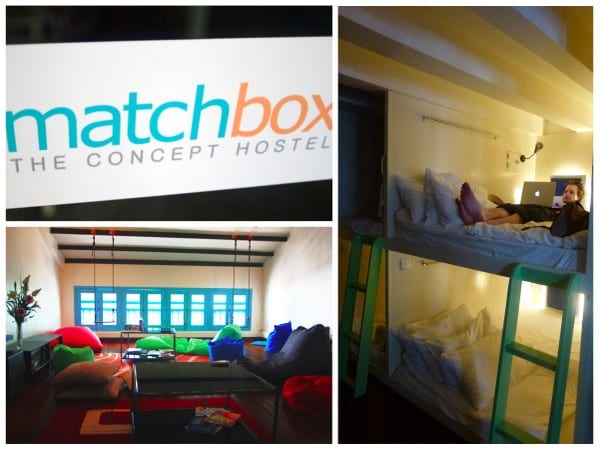Last Updated on May 7, 2023 by Aswetravel
What is a Hostel – When you are out exploring the world on your backpacking trip, staying at hostels is the best way for you to live for many reasons, the main one being that they’re always a lot cheaper to stay at than in the traditional hotels. Hostels are also a great way for you to meet fellow like-minded backpackers and make new friends, as normally you are sharing the room with 4+ people.
Most backpackers have a tight-ish budget to stick with and are always looking for the cheaper option. When it comes to accommodation, hostels are known as the cheaper and more relaxed alternatives to hotels.
Hostels are an excellent way to meet fellow travelers on a budget. They’re also a great way for you to travel more easily as well. This is especially true if you do most of your traveling on foot or in a scooter, as there’s no worrying about finding somewhere to stay.
But what is a hostel? In the simplest terms, it’s a place where travelers sleep at night. You can get into bed, have breakfast, watch TV, or play board games or video games with other travelers at the same time (many hostels have bowling alleys and swimming pools).
Of course, this is not all that it means: there are lots of different kinds of hostels around the world, from cheap shacks with shared bathrooms to luxurious five-star accommodations with private bedrooms and private bathrooms (plus sometimes even more).
If you’re planning on traveling around Spain for more than a few days at any point this year (or anywhere else in Europe), make sure you know what kind of place you’re going to be staying at before you book. If you don’t know for certain, ask your hotel if they can recommend places that meet your needs. Hostels are everywhere and will always be available in whichever country you decide to visit next!
What is a Hostel?
Hostels are places for travellers who stay for a longer period of time in one place. However, there are many types of hostels that have different features and benefits. Some are budget, while some are luxurious and expensive. Some have small rooms and some big ones with private bathrooms.
Hostels can be very convenient if you’re going to need to sleep somewhere for a night or two in order to get to your next destination, but they also have the potential of being a burden if you’re not prepared for something else to occupy your time.
HOSTELS ARE FAMOUS FOR THEIR LIGHT AND EASY-TO-USE FURNITURE. They are generally located in central locations, within walking distance of the city centre. Some hostels offer a wide range of facilities and services such as bars, restaurants, shops, gyms, saunas, swimming pools, laundry services, events calendars and internet access.
A typical hostel has between 100 to 400 beds spread over several floors with common areas and guest rooms on each floor. All rooms are ensuite and have private or shared bathrooms. You can also find budget friendly backpacker hostels that provide clean dorms and basic amenities for few dollars a night.
It is important that you know the difference between the different types of hostels because it can help you figure out what type of accommodation you want when choosing your accommodation.
The following table explains the different types of hostels:
- Type Cost (per night) Budget Hostel (1 person) $50-100
- Mid-range Hostel (2-3 people) $150+
- Luxury Hostel (4-6 people) $250+
- Business Hostel (7-12 people) $350+
I’m sure you can find more information on this topic on the web, but I thought it would be nice if we could discuss our experience with the type that we chose and provide insight into how we spent our money while at university! We chose an amazing place in Vancouver called Triton Hostel where I will now explain why it was so great!
Hostel Definition
Hostel definition – Most often you will sleep in a ‘shared dorm.’ These are rooms that you share with others, and are usually filled with bunk beds. You can find anything from 4 to 20 beds per dorm. Often you can choose (before you book) what kind of dorm you would prefer to stay in – most often the larger dorm (more beds) you choose, the cheaper it will be for you.
Females can sometimes also choose to stay in a dorm shared with only females. A dorm is basically just a bed for you to sleep for the night. You get your own bed and sometimes there are lockers where you can store your luggage and keep it safe.
Hostel Meaning
Hostel meaning – Hostels have become increasingly popular since the late 1990’s when they first became available at low cost. The idea behind hostelling was to provide inexpensive accommodation for students away from home but it soon evolved into an affordable option for travellers on a budget. With their unique atmosphere, friendly staff and easy-to-use furniture, most hostels are ideal places for young travelers looking for cheap accommodation to meet new friends and explore the world together.
What You Can Do at a Hostel
Hostels are places where you can sleep for cheap. You can also have a great time with your friends, but only if you choose the right hostel. Hostels are like hotels in that they offer a safe and comfortable experience for you to explore the world.
However, there are some clear differences between them (see below) and what makes a good hostel is something that I’ve personally come across many times while I’ve been traveling. While it may be important to stay in a “good” hostel if you want to get the most out of it, it’s not just about quality of location or cleanliness – better service and cleanliness can be just as important as that.
What Kind of Traveler Do You Want To Be?
Although it may seem obvious if you’re looking at prices, what kind of traveler do you want yourself to be? If your destination isn’t very far away from where you live, then an urban airport & train station might not be great choices because they’re too busy during the day and at night people won’t necessarily go out as often.
There’s also a lot more competition outside big cities – but if what you’re going for is getting off the beaten path & away from crowds then this could actually work well for your needs! But if what you’re going for is exploring new places close by then perhaps an urban city center isn’t ideal… Ideally
How to Find Cheap Hostels on the Road
Hostels are great places to stay when you’re out on the road and need to save money. But what is a hostel? And what makes them suitable for young travellers?
The terms “hostel” and “hostelry” come from the English language, which is itself an amalgamation of a number of different words. The first part of this word that we can all agree on is “host,” which means someone who welcomes you into his home. The second part relates to the word “lyr,” which means a place where people are gathered together.
In modern usage, these two words mean different things – for example, many people use the word hostel (in the US) to refer to any backpacker accommodation. However in rural areas of England and Ireland it was also common for inns or farmhouses to be referred to as hostels by their residents.
How do you know whether it’s called a hostel or just another kind of accommodation? There are four main differences:
- You should look for an official sign that says “Hostel” in one or more language(s) such as English, French or German . If you don’t see this sign then it’s probably not “Hostel”. Some hostels may have a name that only they know – but they won’t have any official sign saying so!
- You should look for signs that say “Guest House” rather than “Hostel” – if you see this then it may well be considered a guest house.
- Your phone should show some evidence that the hotel has gone online at least once in the last few weeks – if your phone doesn’t show this then it’s almost certainly not a “Hostel”. For example, if there is no internet access then it’s very unlikely that you’ll be able to find your way around without help from other guests.
- Other signs within the hotel indicate whether or not it is open 24 hours . If none of these indicators apply then it’s probably not a “Hostel”.
Sheets or Sleeping Bag?
Sometimes the hostels provide sheets and pillows for free, but often you have to pay extra for this. Sometimes they don’t even give you the choice but to pay extra, because they don’t allow sleeping bags. This they will most likely inform you about before you book the room, and you can also find more info about each hostel via the online booking sites, where other travelers rate and rank their personal experience from each place.
Hostel Private Rooms
hostels have private rooms – Many hostels have private rooms you can choose, which can be a nice thing if you’re a couple travelling together and want some privacy. You will find these are more similar to hotel rooms, however still a lot cheaper. The only major difference apart from no TV, room service or mini-bar, is that the showers and bathrooms are normally still shared with the others from the dorms. You can also book private room for more than two people. This is aimed for groups travelling together.
Hostels Kitchen
This is a fee that solo travelers often are charged when booking a single room and staying in a room with more than one bed. This is a supplement to compensate a hotel for their losses because only one person is using a room or cabin with more than one bed. Nearly all hostel/hotel rooms are built with the assumption that at least two people will occupy them with prices based on that. You can be charged all from 10 to 100% of the bed you won’t be using.
What is a Hostel kitchen like? At the hostels there is usually a kitchen where you can cook your own food. This is a great money saver, as eating out everyday will add up fast. Some hostels also offer a simple but free breakfast. This usually includes tea, toast and a bowl of cereal with milk.
Meeting / Common Rooms
A hostel is a great way to meet other like-minded travelers. Often there are common rooms where you can hang out, watch TV, meet others, make new friends and share travel stories. backpackers use hostels as ‘friend-makers,’ so if you are travelling alone and would like to meet new people, staying at hostels is the way to go!
Do Hostels have Internet Access and WiFi?
Do hostels offer Best Mobile WiFi Hotspot for International Travel services? Depending on the hostel and where you are in the world, the service is different. They often have computers where they charge a lot of money for Internet connection. Others will offer free WiFi. Bringing your own laptop, tablet or smartphone will end up saving you both money as well as time.
We all like to have strong WiFi when staying in hotels and hostels. Those hostels and hotels that are using Hotel WiFi Services will have strong reliable WiFi. Check out our guide for How To Book A Hostel, where we share tips and links for the best places for you to find hostels.
Hostel Pro’s and Con’s
If you are out of your comfort zone, sometimes you may want to be a bit more adventurous and try something different. But before actually doing that, it is important to know the characteristics of a hostel, so you can make an informed choice.
What is a hostel? A hostel is a kind of lodging where people stay together in groups. Typically, there are only six or seven beds shared by a group of people. There are also other conveniences like common showers and kitchen facilities available for each room.
Most hostels provide meals in their rooms, though some do not offer meals at all when you book your accommodation. Most people who stay at hostels tend to be younger than their counterparts staying in hotels. As such, they make up more of the population than older people who tend to be found more often at hotels than in hostels.
What are the benefits of staying at a hostel? The best benefit associated with staying at a hostel is its affordability (it’s usually cheaper than staying in many hotels). The price usually includes bed sheets and towels as well as breakfast and dinner on most nights. Some places even offer meals if you ask for them (it depends on the place).
There are also some advantages that come with staying in a dorm:
- sleepiness – it’s easier for people to fall asleep when they’re close together as opposed to spread out in a group room or couch-shaped room;
- socializing – it’s easier for everyone else to talk because there’s less space;
- privacy – nobody else is hanging around watching them from the door or window;
- being away from home – it adds an element of adventure and interest;
- freedom – it allows travellers who aren’t looking for trouble to find somewhere safe;
- safety – no one wants to get assaulted or robbed while exploring the world on their own – especially if they’re just starting out (there have been many cases of this happening);
- cleanliness – since everyone stays together, there shouldn’t be any dirty dishes lying around on tables and floors everywhere;
- security – it can help keep things running smoothly – especially if someone doesn’t feel safe enough alone without help around.
The main disadvantage of staying at a hostel is that most places don’t allow pets even though generally speaking dogs don’t cause any problems (unless they get into your food). Hostels do allow small animals like rabbits, hamsters etc., but not cats or dogs bigger than those which can fit onto your bed anyway.
Why Working Remotely is Harder than You Think
Best Apps for Traveling
How Do I Get Internet While Traveling?
Using My Cell Phone While Traveling to Europe
Best Mobile WiFi Hotspot for International Travel




